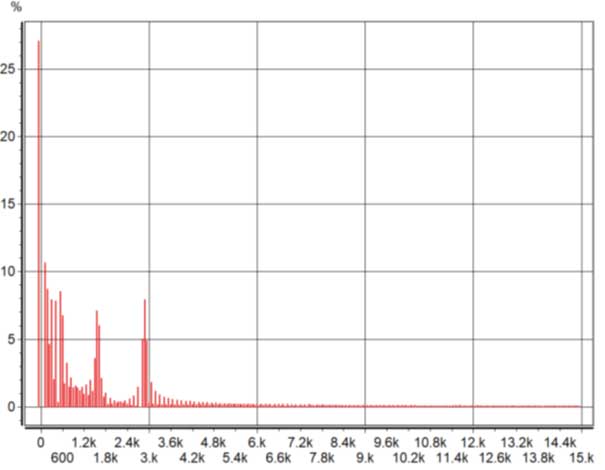INTRODUCTION
Supra Harmonics is the current buzz word around the PQ monitoring industry. Harmonics are well known, but what are Supra Harmonics? Where do they come from, and should you be concerned?
These FAQ’s will dive into Supra Harmonics, discuss their sources, applicable standards, and how to use our products to measure them.

SUPRA HARMONICS FAQ’S
Supra Harmonics is a term used for voltage and current spectral components in the range from 2 kHz to 150 kHz in power supply networks.
IEC 61000-4-30 Edition 3, the draft of Edition 4, and IEEE 519:2022 require harmonic measurements to the 50th harmonic. This is for Total Harmonic Distortion (THD), Total Demand Distortion (TDD). The 50th harmonic is 3kHz @ 60Hz and 2.5kHz @ 50Hz.
No. In the standards world, normative usually means required. Informative means not required and is additional information usually contained in annexes. The measurement of Supra Harmonics is part of the informative annexes in IEC 61000-4-30 Edition 3 and presently the draft of IEC 61000-4-30 Edition 4. Being in the informative sections, Supra Harmonics are not a requirement for compliance with these standards. As of this writing, any PQ instrument claiming Supra Harmonic measurements use proprietary methods developed by the manufacturer.
No. IEC 62586:2017 is a standard for testing PQ meter compliance with the normative requirements of IEC 61000-4-30 Edition 3. Supra Harmonics are part of the informative annexes of 61000-4-30 Edition 3, so they are not included in the scope of IEC 62586.
Not that we are aware of.
The proliferation of Inverter Based Resources (IBR) are thought to be the primary source. Examples include EV chargers, and Distributed Energy Resources (DER) such as solar, wind, battery storage.
The answer is subjective. To our knowledge, documented cases of actual Supra Harmonics problems in power systems are limited. The information that we are aware of in the USA indicates that such cases include spectral components in the lower end of the Supra Harmonic range. In Europe, power line carrier communications are more prevalent and are thought to be potentially affected by Supra Harmonics. Such communications are used for grid control, metering, and other applications.
Our feedback is that Supra Harmonics are not a major concern today but could become more of a concern in the future. Customers have reported seeing activity around the 50th harmonic and around the 100th harmonic.
All GOSSEN METRAWATT manufactured PQ products display well beyond the 50th harmonic required by the above-mentioned PQ standards. The GOSSEN METRAWATT MAVOWATT displays up to the 127th harmonic for voltage and 63rd harmonic for current. As described below the data recorded is capable of higher order harmonics.
Yes, up to 15.3kHz @ 60Hz and 12.75kHz @ 50Hz (the 255th harmonic). The range of measured harmonics depends on the sampling rate. The GOSSEN METRAWATT MAVOWATT Series sample at a rate of 512 samples per cycle which can accommodate up to the 255th harmonic for voltage and current. The MAVOWATT 30 samples at 256 samples per cycle and can accommodate harmonics up to the 127th for voltage and current.
By using the Dran-View 7 Enterprise Harmonic & Timeplot calculator. Dran-View 7 Enterprise can compute the harmonics of any stored waveform. Our suggestion is to enable waveform recording with the journal intervals when configuring your meter. Once the data is in Dran-View 7 Enterprise, the Harmonic and Timeplot calculator can compute the harmonics of each waveform to the 255th. You can then plot computed harmonics as a timeline or view the harmonic spectrum of any waveform recorded.




